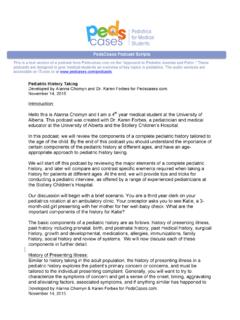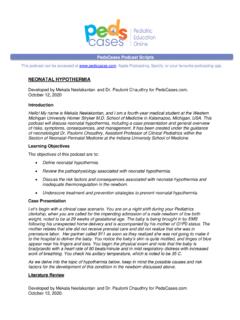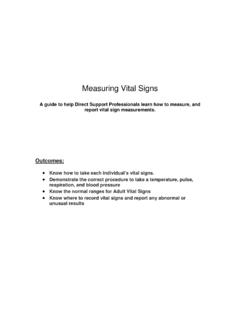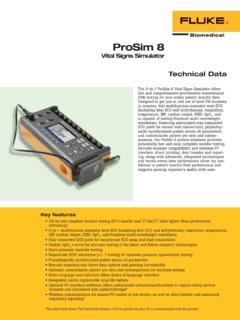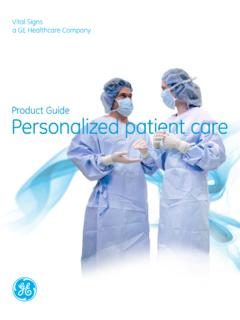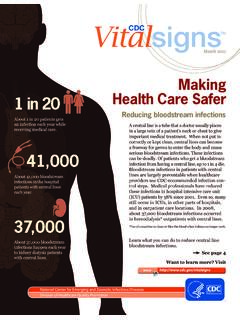Transcription of Vital Signs Reference Chart 1.2 - pedscases.com
1 Developed by Chris Novak and Peter Gill for April 21, 2016. Heart Rate Respiratory Rate Normal Heart Rate by Age (beats/minute) Reference : PALS Guidelines, 2015 Age Awake Rate Sleeping Rate Neonate (<28 d) 100-205 90-160 Infant (1 mo-1 y) 100-190 90-160 Toddler (1-2 y) 98-140 80-120 Preschool (3-5 y) 80-120 65-100 School-age (6-11 y) 75-118 58-90 Adolescent (12-15 y) 60-100 50-90 Normal Respiratory Rate by Age (breaths/minute) Reference : PALS Guidelines, 2015 Age Normal Respiratory Rate Infants (<1 y) 30-53 Toddler (1-2 y) 22-37 Preschool (3-5 y) 20-28 School-age (6-11 y) 18-25 Adolescent (12-15 y) 12-20 Blood Pressure Normal Blood Pressure by Age (mm Hg) Reference : PALS Guidelines, 2015 Age Systolic Pressure Diastolic Pressure Systolic Hypotension Birth (12 h, <1000 g) 39-59 16-36 <40-50 Birth (12 h, 3 kg) 60-76 31-45 <50 Neonate (96 h) 67-84 35-53 <60 Infant (1-12 mo) 72-104 37-56 <70 Toddler (1-2 y) 86-106 42-63 <70 + (age in years x 2) Preschooler (3-5 y) 89-112 46-72 <70 + (age in years x 2) School-age (6-9 y) 97-115 57-76 <70 + (age in years x 2) Preadolescent (10-11 y) 102-120 61-80 <90 Adolescent (12-15 y) 110-131 64-83 <90 For diagnosis of hypertension refer to the NHBPEP Reference tables: Temperature Oxygen Saturation Normal Temperature Range by Method Reference .
2 CPS Position Statement on Temperature Measurement in Pediatrics, 2015 Method Temperature (oC) Rectal Ear Oral Axillary Temperature ranges do not vary with age. Axillary, tympanic and temporal temps for screening (less accurate). Rectal and oral temps for definitive measurement (unless contraindication). Normal pediatric pulse oximetry (SPO2) values have not yet been firmly established. SPO2 is lower in the immediate newborn period. Beyond this period, a SPO2 of <92% should be a cause of concern and may suggest a respiratory disease or cyanotic heart disease. Pediatric Vital Signs Reference Chart This table, along with our detailed references can be found online at For a more detailed approach to this topic, see our podcast on Pediatric Vital Signs .
3
